Apprenticeships
Welcome to the Apprenticeship Hub Page.
Here you will find information on apprenticeships and the range of programmes available to you in your role.
If you have any queries after looking through these pages, would like to learn more or to enrol on one of these programmes, please contact Ali Bretherton, Head of Organisational Development at the Foundation Office.
Apprenticeships are available to anyone regardless of age and are applicable for both newly appointed and existing staff Continuing Professional Development (CPD).
Apprenticeship qualifications are fully funded by the apprenticeship levy and provide the opportunity to gain on the job learning and development in a range of qualifications from GCSE up to and including Masters Level Degree.
What is an apprenticeship?
An apprenticeship is a great paid work opportunity for anyone over the age of 16 who is:
- Early in their career
- Looking to upskill in their current job role
- Looking for a career-change
An apprenticeship provides an opportunity for an employee to learn and gain valuable, on the job experience. Apprentices spend at least 20% of their working hours completing classroom-based learning with a college, university or training provider, which leads to a nationally recognised qualification.
Programmes are a minimum of 12 months and typically last between 12 to 24 months. Training can take longer – this is dependent upon the learner and their speed of learning. In all cases the length of the apprenticeship will be confirmed at the start.
Apprenticeships can be used to up skill and/or retrain employees including older workers or existing staff, providing the apprenticeship is giving them new skills to enable the to achieve competence in their chosen occupation.
In order for someone to undertake an apprenticeship, the learning in the programme must be based on the individuals job role and there has to be a genuine development need that the programme will address.

More information
-
Each apprenticeship is based on an apprenticeship standard.
A standard contains a list of skills, knowledge and behaviours an apprentice will need to have learned by the end of their apprenticeship.
Standards are occupation-focussed; they are based on the job role that someone is undertaking.
Apprenticeship Standards are designed by trailblazer groups. A trailblazer is a group of employers who come together to develop apprenticeship standards specific for job roles in their sector. These standards will be completely new, for job roles which have never had an apprenticeship programme, or will replace existing programmes for other job roles.
Once the apprenticeship standard has been designed by a trailblazer group, this will need to be approved by the government.
Once an apprenticeship standard has been ‘approved for delivery’ these standards can be converted into apprenticeship programmes and delivered by approved training providers.
At the end of an apprenticeship an ‘end point assessment’ is undertaken by the apprentice to ensure that they meet the requirements of the programme and the qualification can be awarded.
-
-
For a list of apprenticeship programmes and the job roles they are applicable for please see below. If you have any queries about any of these programmes please get in touch with Ali Bretherton for further details.
-
Line Managers are required to ensure appropriate support to their apprentices by:
1. Identifying suitable entry level vacancies as posts for apprenticeships ensuring job descriptions and specifications are up to date.
2.Working with employees (at all levels) to identify future development and progression opportunities and review existing job roles to identify where there is an opportunity for employees to undertake a relevant apprenticeship to develop new skills.
3.Considering the opportunities of apprenticeships to support career pathways, progression and the Foundation’s approach to employing a diverse workforce.
4.Considering the use of apprenticeships to reduce skills gaps and reliance on contingent workers.
5.Reviewing School Development Plans to identify any key skills needs relevant to support the development of the Foundation’s apprenticeship programme.
6.Identifying clear learning objectives and learning outcomes for each of their employees undertaking an apprenticeship.
7.Ensuring a signed apprenticeship agreement is in place.
8.Scheduling and undertaking regular appraisal reviews and 121’s to ensure training needs can be identified and reviewing apprentices progress throughout the duration to the apprenticeship.
9.Allowing for opportunities for apprentices to attend external off-the-job training and assessments required to complete the apprenticeship.
10.Ensuring apprentices know how to access help and guidance to help them fulfill their duties and playing an integral part in providing assistance where needed.
11.Providing support to apprentices when they are on a programme and ensuring that staff have time to complete their apprenticeship.
-
Off-the-job training is defined as learning which is undertaken outside of the normal day-to-day working environment and leads towards the achievement of an apprenticeship.
The off-the-job training does not have to be off site, the 20% must be directly relevant to the apprenticeship standard and could include the following examples where they can be carried out in the school, as follows:
- Lesson observations
- Online Learning/training
- Job shadowing
- Mentoring
- Attending webinars
- Role playing
- Simulation exercises
- Time spent receiving learning support
- Time spent writing assessments/assignments.
-
-
-
Apprentices must be an employee on the first day of their apprenticeship and as a minimum at least be paid a salary consistent with the law for the time they are in work. The appropriate eligibility checks must be carried e.g., right to work in England.
The apprenticeship must be recorded correctly in the digital apprenticeship service account. An apprenticeship agreement must be signed at the start of the apprenticeship. There must be a commitment statement, signed by the school, the apprentice and the main provider.
The apprentice must take part in learning throughout the apprenticeship. The school must provide evidence to the training provider of the apprentice’s average weekly hours and any changes to working patterns. The training provider must be given the apprentice’s eligibility at the start of their apprenticeship.
The Line Manager will ensure that opportunities to complete the 20% off-the-job training a key requirement of being able to complete the apprenticeship are given.
-
When considering opportunities for apprenticeships it is important to take into account:
- Recruitment: what vacancies do schools currently have? Can any existing vacancies be converted into an apprenticeship to provide a developmental opportunity for a new entrant or, can we provide an opportunity for an existing staff member to move into a new role and learn and develop skills as part of career development/internal progression?
- Retention and Workforce Planning: can we identify roles where staff are due to be leaving? Can we identify who is due to retire in the next year or two, can we create a developmental opportunity to train existing staff now as part of succession planning? Are there promotional opportunities for existing staff?
- Learning & Development/skills gaps: can we identify skills gaps and development needs in schools and where do these exist? What are the CPD needs as outline in existing schools development plans?
- Future skills: what trends do we foresee, what future skills needs will we have in 6/12/18 months time or longer term? Can we plan to develop staff now to meet these requirements?
- Development opportunities for all staff: how can we ensure that we train all staff including SLT, teaching and support staff and Foundation Office staff? How do we ensure that development needs are appropriately reviewed at what point and when and how do we ensure that we collate those training needs for feedback to colleagues in the Foundation Office?
- Career pathways for staff: how can apprenticeships provide support with career pathways?
- Students leaving school/sixth form: can schools create opportunities for school leavers to undertake an apprenticeship in their schools? How can we create opportunities to help students get into employment?
-
The Foundation has two Levy funds, one for the Trust and one fund that covers the Independent Schools and the Foundation Office.
Each Trust school has been provided with their allocation of funds and their spend has been projected forward to the end of the current academic year. The Schools committed spend to date has also been calculated and projected forward to the end of the academic year.
The Trust has approximately 24 months’ to spend Levy funds, the government will withdraw any unspent funds from our account after this time and will deduct the oldest funds first.
We have healthy apprenticeship funds and we have met with schools to discuss ways of spending these funds, however we are always looking to maximise opportunities for spending these funds wherever possible.
Apprenticeship Funding Rules – Key Points
- An apprentice has to work a minimum of 30 hours per week usually, however, adjustments can be made to the length of apprenticeship programmes to allow to the programme to be completed over a longer period, where working hours are less than this
- The apprentice must spend at least 20% of their time on off the job training and adequate time will be given to allow for the completion of this
- There must be a genuine job available during the apprenticeship
- The cost of the apprentice’s salary must be met by the specific school
- The apprentice must have a contract of employment which is long enough for them to complete the apprenticeship successfully
- The apprentice must have a job role that provides the opportunity for them to gain the knowledge, skills and behaviours needed to achieve their apprenticeship
- The apprentice must have the appropriate support to carry out their job role
- The Line Manager must ensure that they provide an appropriate level of support to enable to apprentice to complete the apprenticeship
-
Each apprenticeship has a level of qualification associated with it; the levels are as follows:
Level Equivalent educational level Intermediate 2 – GSCE Advanced 3 – A Level Higher 4,5,6 & 7 – Foundation Degree and above Degree 6 and 7 – Bachelor’s or Master’s Degree -
Apprentice Responsibilities:
- Abiding by relevant policies and procedures.
- Carrying out the requirements of the job to a high standard.
- Working to complete their apprenticeship qualification and make good progress throughout the length of the apprenticeship, developing knowledge, skills and behaviours required to fulfil the requirements of their role. If at any time any issues with committing to the apprenticeship occur, the apprentice will highlight any concerns to their Line Manager and the training provider.
- Attending all training and ensuring compliance with off-the-job training requirements.
- Seeking further clarification or support on any aspect of the apprenticeship of their role where they are unclear.
- Where additional learning support is provided any the training provider, the apprentice will work to ensure that they complete this, undertaking all relevant training support as required.
- Completing and signing an apprenticeship agreement.
HR Team’s Responsibilities:
- Providing support and guidance throughout the process as required.
- Working with the schools to identify their key skills needs from their School Development Plans.
- Working with schools to provide support to identify vacancies that would be suitable to undertake an apprenticeship.
- Working with Line Managers to provide support and identify suitable apprenticeship standards and frameworks that are relevant to existing employees and the role they are undertaking.
- Working with schools to agree learning outcomes from the apprenticeship and how they help support the developmental activity of the school.
- Working with schools to identify suitable training providers and monitoring the success of the provision, providing feedback and seeking to address issues and risks.
- Ensuring a signed apprenticeship agreement is in place.
- Monitoring the application of the policy, process and monitoring and reporting use of the apprenticeship levy.
- Working with providers to ensure quality and value for money is achieved.
-
Apprentices who joined your organisation from 1 April 2021
Employers will receive £3,000 for new apprentices of any age who join their organisation from 1 April 2021 to 30 September 2021.
Employers can apply for incentive payments for these apprentices from 1 June 2021 to 30 November 2021.
The incentive payment is in addition to the £1,000 employers already receive for hiring an apprentice:
- aged 16 to 18 years old
- under 25 with an education, health and care plan or who has been in the care of their local authority




